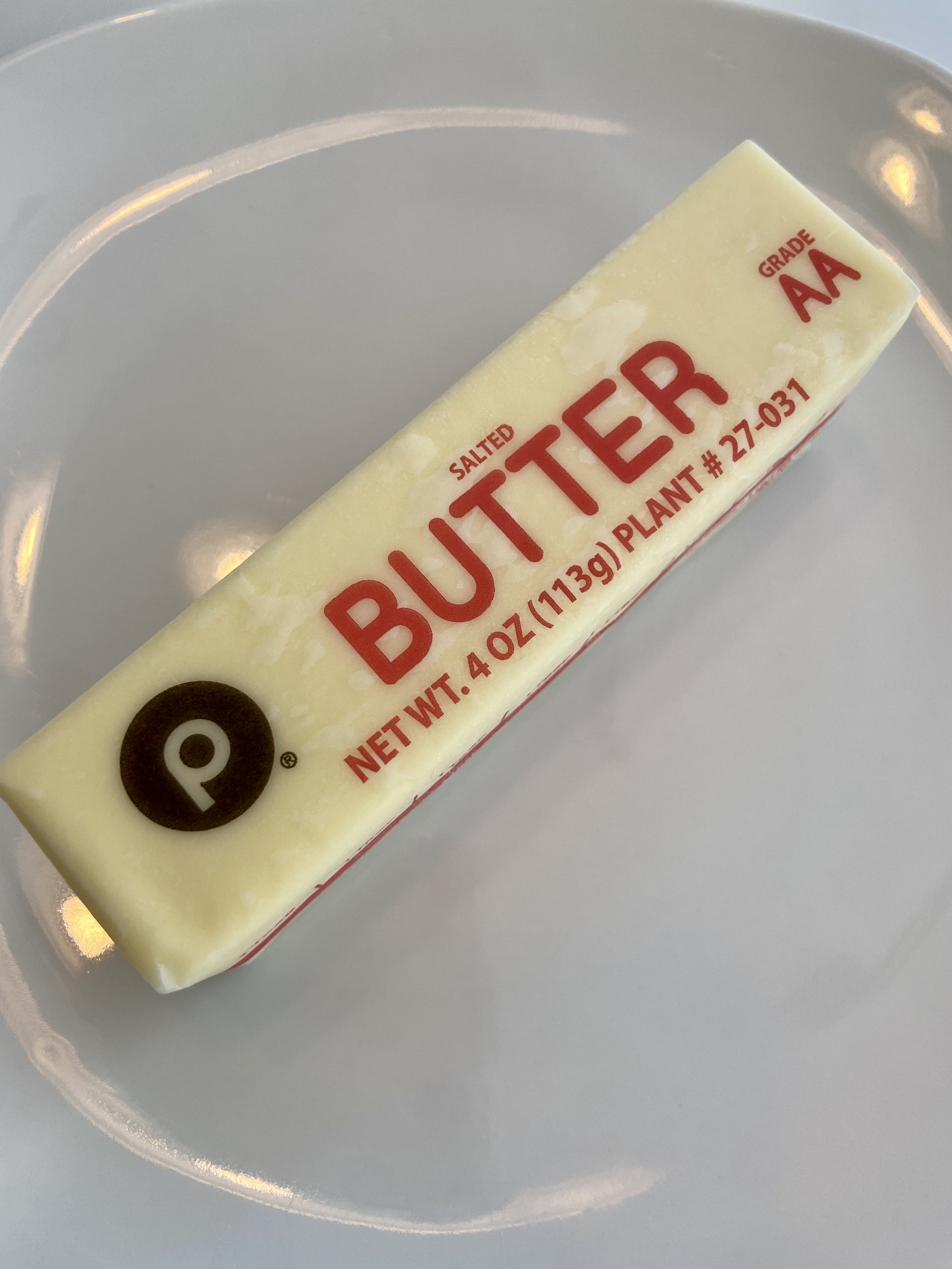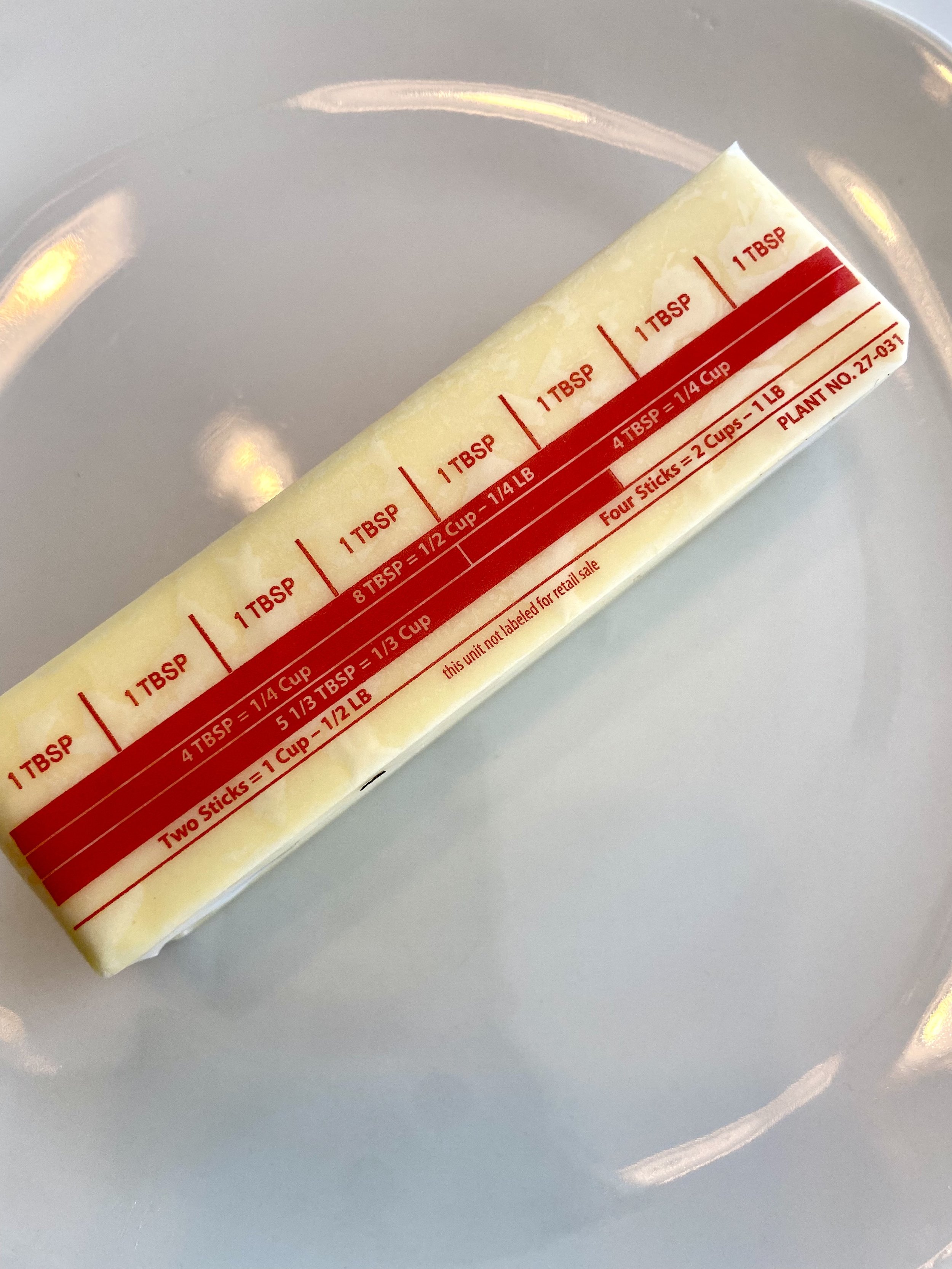Butter FAQ
Butter. Arguably one of my favorite foods ever. I’m sure you have heard the saying, “butter makes everything better.” I think that may be true.
There are a few things that are important when it comes to butter. Especially when baking with it. I won’t be able to talk about them all, that could be the topic of a full website on its own!
I always get asked the same things regarding butter so I am going to address a few of the more common questions below.
Does it matter if you use salted versus unsalted butter?
Yes, it absolutely matters. If the recipe creator wants you to use unsalted butter, they will usually specify unsalted butter. If the recipe calls for butter but doesn’t specify, it is usually safe to assume it is salted butter.
You can easily use unsalted butter for recipes that call for salted butter. Just add about a 1/4 teaspoon of salt for every stick (1/2 cup) of unsalted butter.
Every recipe creator will have their own views on using one type of butter vs. the other. Most (but not all) will use unsalted butter and add salt as an extra ingredient so the level of salt can be controlled how they want. Salt in baking doesn’t make baked goods salty. Salt acts to enhance the sweet flavor but also to moisten baked goods.
What does room temperature butter mean?
Room temperature butter means your butter should feel cool when you touch it, not warm. Your finger will create an indent in the side of the butter upon touching. You shouldn’t see any melting around your finger.
Your finger should not mush the butter or slide into the middle of the butter stick very easily. If it does that, then the butter is too soft, and you should put it in the fridge for a little bit.
What happens if I forgot to take out my frozen butter and I need it for baking?
Fear not, this can be fixed by using a few methods!
Usually frozen butter will take a few hours (depending on how warm your kitchen is) to come to room temperature if you just leave it on the counter. We don’t always have that kind of time if we forgot it in the freezer or are baking on a whim. A few methods below can help speed up the process.
Method 1
First, you can grate the frozen butter using the fine side of your grater. This will allow the butter to warm up faster than if you kept it in a solid block. Beware that your arms will get a workout grating the butter!
Method 2
Another method I love is to give your butter a “time out.” Basically you will place the butter stick on a plate standing upright under a hot glass for about 10-15 minutes. Make the glass hot by filling it with hot water, let the water sit in the glass for a few minutes, and then pouring out the water. Make sure to dry the glass quickly before placing on top of the butter and be careful not to burn yourself.
Should I be using cold or room temperature butter when baking?
That depends on what you are baking. Room temperature butter is best for things like cakes as it ensures cakes bake up nice moist and not too dense. It is required to ensure the ingredients combine well to make sure your cakes mix up evenly and come out fluffy!
When making cookies however, room temperature butter may be just fine, but if your cookies are spreading too much when baking, then using colder butter will usually solve this. Some cookie recipes call for melted butter to be added to the recipe. These cookie doughs usually require chilling of the completed dough in the fridge prior to baking to ensure the cookies retain their shape.
Cold or chilled butter is great for biscuits, scones and pies as when they are baking in the oven, the cold butter will melt resulting in those flaky buttery layers you want.
Happy baking, and I hope those tips have been helpful!





